Rat Prolactin / PRL Bioactive Protein Product Attributes
Product Type: Bioactive Protein
Recombinant Prolactin / PRL based upon sequence from Rat
Host: QP5505 protein expressed in E. coli.
Tag: Untagged
Recommended Applications: Bioactive
Application Notes: Please contact us for application specific information for QP5505.
Bioactivity Data: Rat Prolactin / PRL induces NB2-11 cell proliferation (typical ED50 is ? 0.1 ng/ml).
Monomer or Dimer: Monomer
Amino Acid Sequence: MLPVCSGGDC QTPLPELFD R VVMLSHYI HT LYTDMFI EFD KQYVQD REFI AKAIN DCPTS SLAT PEDKEQ AQK VPPEVLLNLI LSLVHSW ND PLFQLITG L GGIHEAPDA IISRAKEIEE QNKRLLEGI E KIISQAYP EA KGNEIYL VWS QLPSLQ GVDE ESKDL AFYNNIRCLR RDSHK VDNY LKFLRC QIV HKNNC
Purity: Greater than 95% as determined by SDS-PAGE.
Reconstitution Instructions: A Certificate of Analysis (CofA) will be sent along with the protein and will contain the proper reconstitution instructions.
Concentration of Rat Prolactin / PRL Protein: Lyophilized. Concentration determined by reconstitution volume.
Endotoxin Levels: Less than or equal to 1.00 EUs/ug as determined by the LAL method.
Buffer: 20 mM sodium phosphate, pH 7.5
Storage Conditions: Store at -20C to -80C lyophilized. Guaranteed for 1 year at -80C reconstituted and 3 months at 4C reconstituted.
| Recombinant Rat Prolactin / PRL Protein General Information | |
|---|---|
| Alternate Names | |
| Prolactin, PRL, GHA1 | |
| Curated Database and Bioinformatic Data | |
| Gene Symbol | PRL |
| Entrez Gene ID | 24683 |
| Ensemble Gene ID | ENSRNOG00000017374 |
| RefSeq Protein Accession(s) | NP_036761.1 |
| RefSeq mRNA Accession(s) | NM_012629.1 |
| UniProt ID(s) | P01237 |
| UniGene ID(s) | Rn.9759 |
| COSMIC ID Link(s) | PRL |
| KEGG Gene ID(s) | rno:24683 |
| General Description of Recombinant Rat Prolactin / PRL Protein . | |
| Prolactin (PRL) is a hormone that is produced and secreted by the pituitary gland. PRL acts in an endocrine, paracrine, and autocrine manner. The prolactin receptor (PRLR) is expressed on many cell types, including cells of the reproductive organs, central nervous system, and breast cancer. PRL signal transduction occurs via JAK kinase signaling pathways. The primary function of PRL is to regulate lactation, but PRL also plays functional roles in the immune system and during cell growth, apoptosis, and differentiation. | |
Limitations and Performance Guarantee
This is a life science research product (for Research Use Only). This product is guaranteed to work for a period of two years when stored at -70C or colder, and one year when aliquoted and stored at -20C.

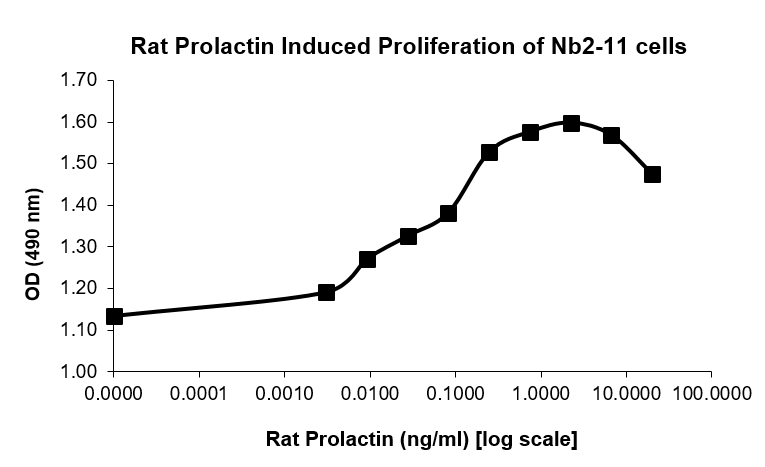


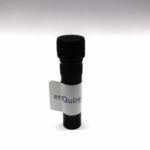

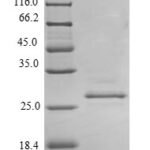
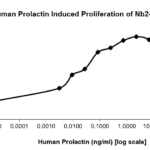
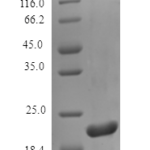

Reviews
There are no reviews yet.